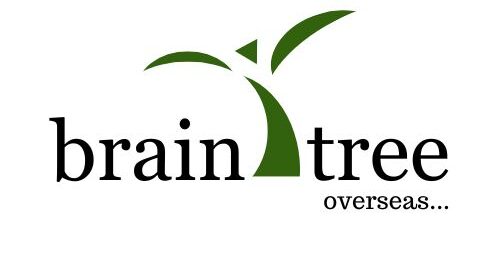Are you considering pursuing your higher education abroad? Look no further than Europe – a continent that beckons students from all corners of the globe with its diverse opportunities for education and cultural experiences. With a plethora of historic landmarks, picturesque landscapes, a shared economic system, and rich cultural diversity, Europe has become a magnet for international students seeking not only top-notch education but also a life-changing adventure.
In this article we’ll explore the numerous reasons that contribute to its popularity as an appealing destination.. Europe truly opens up a world of opportunities for every ambitious student. So, let’s take this journey together and discover the exciting possibilities that await those who are eager to pursue their education in Europe.
Europe is a fantastic destination for international students, with a wide range of benefits that make it an attractive choice. The continent’s diverse cultures, historic landmarks, and economic stability create an enriching environment that allows students to thrive both academically and personally.
Advantages Of Studying In Europe
Shared Economic System and Stability:
- A shared economic system among many countries fosters stability for education and future prospects.
- Provides a secure environment for pursuing higher education.
Cultural Diversity and Global Outlook:
- Europe’s rich cultural diversity nurtures a global outlook in students.
- Exposure to a vibrant tapestry of traditions, languages, and perspectives.
Linguistic Diversity and Language Learning:
- Europe’s significance as the cradle of influential languages offers diverse language learning opportunities.
- The hub of linguistic diversity, enhancing communication skills and cultural understanding.
Wide Range of Academic Programs:
- Over 2500 recognized higher education institutions offer diverse academic programs.
- Tailored courses catering to various interests and career paths.
Free Education for Outstanding Students:
- Some European countries offer free education to international students with exceptional academic qualifications and research skills.
- European Higher Education Area (EHEA) and European Qualification Framework (EQF) ensure standardized education and mobility.
Modular or Hybrid Course Structures:
- Europe offers flexible course structures allowing students to customize their learning experiences.
- Personalized academic journey to meet individual learning preferences.
Extensive Selection of Disciplines:
- Europe’s emphasis on various disciplines including art, design, business, engineering, and more.
- Abundance of options for students to explore their academic interests.
Generous Financial Support and Scholarships:
- Europe provides financial support through scholarships and schemes for international students.
- Erasmus+ Scheme enables qualified students to study in 33 European countries without tuition fees.
Cultural Enrichment and Personal Growth:
- Studying in Europe amalgamates education, culture, and personal growth.
- Students forge unforgettable memories while gaining a world-class education.
Studying in Europe is a transformative expedition that offers a harmonious blend of education, cultural experiences, and personal development. The continent’s diverse advantages create an environment where students can thrive academically and culturally, making their educational journey truly remarkable.
Educational Opportunities In Europe
Europe stands as a vibrant hub for higher education, offering a wealth of educational opportunities that span diverse fields of study. At the core of its appeal lies the linguistic diversity that makes Europe the cradle of some of the oldest and most significant languages in the world. This linguistic tapestry creates a unique environment for students eager to immerse themselves in different cultures while pursuing their academic goals.
The European Union’s educational allure is further bolstered by hosting over 2500 recognized higher education institutions. These institutions boast a wide array of programs encompassing fields like Medicine, Engineering, Business, Journalism, and Research Degrees, catering to the varied interests and aspirations of international students.
Free education is one of the most enticing aspects for many students, as several European countries extend this opportunity to those with outstanding academic qualifications and research skills, significantly reducing the financial burden associated with pursuing higher studies abroad.
Furthermore, the European Higher Education Area (EHEA) and European Qualification Framework (EQF) ensure uniformity in education standards, facilitating seamless collaboration among European countries. This harmonization ensures that students can easily transfer credits and continue their academic journey across borders, enhancing the appeal of studying in Europe.
In the subsequent sections of this article, we will explore the practical aspects of studying in Europe, including scholarships, visas, and popular courses. Let’s embark on this enlightening expedition together to discover the vast world of educational possibilities that await international students in Europe.
European Higher Education System
Introduction The European higher education system is renowned for its academic excellence and innovation, attracting students worldwide to its esteemed institutions. The system is anchored by the European Higher Education Area (EHEA) and the European Qualification Framework (EQF), which ensure standardized education and promote collaboration among European nations.
European Higher Education Area (EHEA)
- Seamless Mobility: The EHEA encompasses 48 participating countries, offering smooth mobility for students and academics. This facilitates the exchange of knowledge and ideas across borders.
- Diverse Course Offerings: Students have a wide range of courses to choose from, catering to their varied interests and aspirations. This diversity allows for a personalized educational journey.
- Credit Transfers: The interconnectedness of the EHEA enables students to begin their studies in one European country and complete them in another. This flexibility broadens their educational experiences.
European Qualification Framework (EQF)
- Transparent Recognition: The EQF provides a clear framework for recognizing qualifications across Europe. It categorizes qualifications into eight levels, ensuring comparability and enhancing mobility and employability.
- Comprehensive Levels: The EQF spans from basic skills to doctoral degrees, encompassing a wide spectrum of educational attainments and promoting lifelong learning.
Rich Variety of Programs
- Diverse Fields: European higher education institutions offer programs in Medicine, Engineering, Business, Journalism, Research Degrees, and more. Students can find the perfect fit for their academic pursuits.
- Holistic Learning Experience: Programs include lectures, exams, coursework, essays, and industry projects, fostering a well-rounded educational journey.
International Student Experience
- Confident Pursuit of Passions: International students benefit from the reputation of the robust European higher education system, allowing them to confidently pursue their academic interests.
- Global Perspective: Through this transformative journey, students not only gain knowledge but also develop a global perspective, enriching their personal and professional lives.
- Lifelong Connections: The inclusive nature of the system enables students to form lifelong connections, enhancing their network and future opportunities.
The European higher education system, supported by the EHEA and EQF, offers a dynamic and inclusive educational landscape. It empowers students to pursue their passions, fosters a global perspective, and provides a platform for personal and professional growth.
Scholarships & Financial Support
Studying in Europe offers international students a plethora of enticing scholarships and financial support options. European countries recognize the value of attracting global talent and have established diverse programs to enhance accessibility and affordability of education.
1. Free Education for Exceptional Students: European countries offer free education for academically exceptional students, reducing the financial burden significantly. This opportunity is available across various fields of study, including Art, Design, Media, Business, Computer Science, Engineering, Medicine, and Social Sciences.
2. Special Scholarships for International Students: Numerous scholarships are designed to specifically support international students pursuing their academic dreams in Europe. These scholarships span a wide range of disciplines and contribute to making education more accessible.
3. Erasmus+ Scheme: The renowned Erasmus+ Scheme stands out as a remarkable initiative. It offers qualified students the exceptional opportunity to study in any of the 33 European countries without tuition fees. This program not only promotes academic excellence but also fosters cultural exchange, leading to lifelong friendships and invaluable experiences.
4. Beyond Scholarships – Additional Financial Aid: Apart from scholarships, European higher education institutions provide various financial aid options, including bursaries, grants, and work-study opportunities. These resources further assist students in managing their expenses while studying abroad.
5. The Importance of Research and Application: Prospective students planning to study in Europe should conduct thorough research and actively apply for scholarships and financial support opportunities. These resources can significantly impact academic pursuits and enhance the overall study abroad experience.
By making use of these scholarships and financial assistance opportunities, students from around the world can chase their educational dreams in Europe without being burdened by excessive financial worries. This allows them to fully immerse themselves in their studies and experience the rich tapestry of cultures that Europe has to offer.
Practicalities for International Students
Studying in Europe can be a highly rewarding experience for international students, but it also involves several practical aspects that need careful attention. As you embark on this educational journey, it’s important to be well-prepared and informed about various factors that can impact your transition and overall experience.
1. Student Visas: Students hailing from countries outside the European Economic Area (EEA) and European Union (EU) need to secure a student visa for studying in Europe. To ensure a smooth process, remember these key points:
- Research visa requirements specific to your chosen European country.
- Apply for the student visa well in advance to avoid potential delays in your travel plans.
2. Health Insurance: Health insurance is a mandatory requirement for international students pursuing their education in Europe. Keep in mind:
- Health insurance provides coverage for medical emergencies, ensuring your well-being.
- Consult your chosen university for guidance on the type of health insurance you need and how to obtain it.
3. Course Structure: European universities offer a variety of course structures, giving you flexibility to tailor your academic journey:
- Choose a course structure that aligns with your academic goals and career aspirations.
- Consider modular or hybrid programs that suit your preferences and learning style.
4. Financial Support: There are various options for financial support that can alleviate the cost of studying in Europe:
- Some European countries offer free education for students with exceptional academic records.
- Explore scholarships and financial aid offered by universities and governmental institutions.
5. Student Support Services: Many European universities provide dedicated services to assist international students throughout their academic journey:
- These support services help with administrative processes, campus integration, and addressing challenges.
- Take advantage of these resources to ease your transition and enhance your experience.
6. Cultural Adaptation: Adapting to a new culture is an integral part of studying abroad in Europe:
- Embrace the opportunity to immerse yourself in diverse cultures and experiences.
- Seek guidance from university staff and fellow students to navigate cultural differences effectively.
7. Embracing Opportunities: Studying in Europe offers endless possibilities for personal and academic growth:
- Keep an open mind and be prepared to embrace new experiences.
- Make the most of your time abroad by actively engaging with the local culture and academic community.
Studying in Europe can be a transformative experience, and by addressing these practical considerations, you can embark on your educational journey confidently and make the most of your time in this diverse and vibrant continent.

